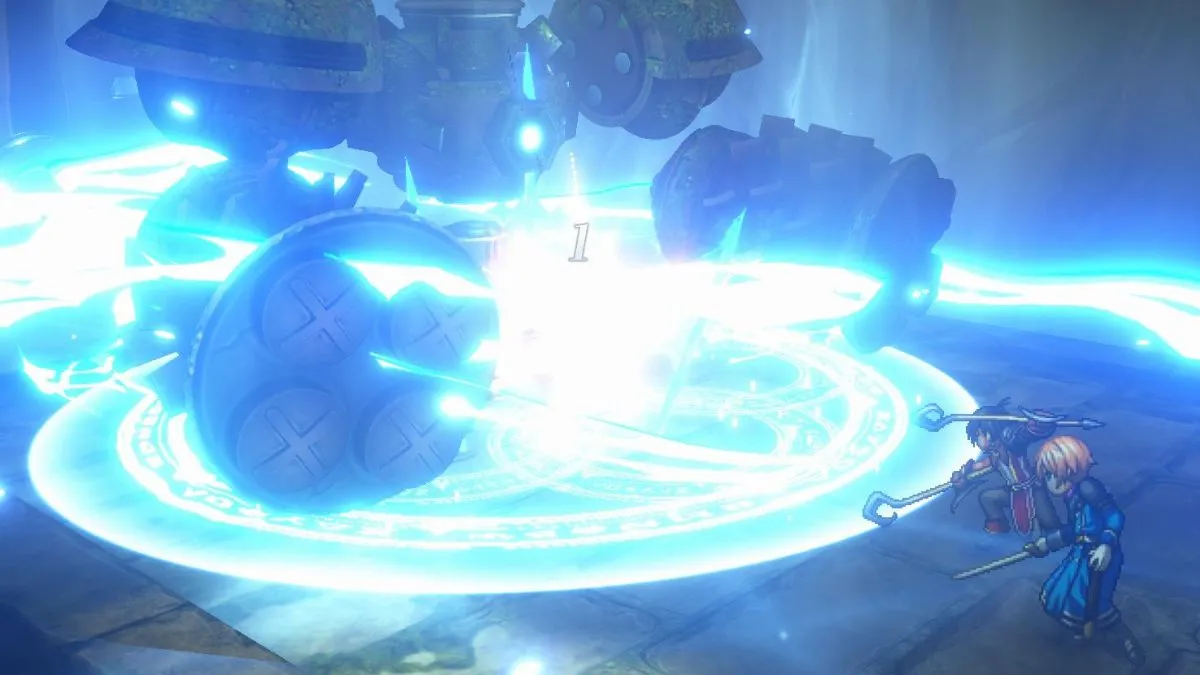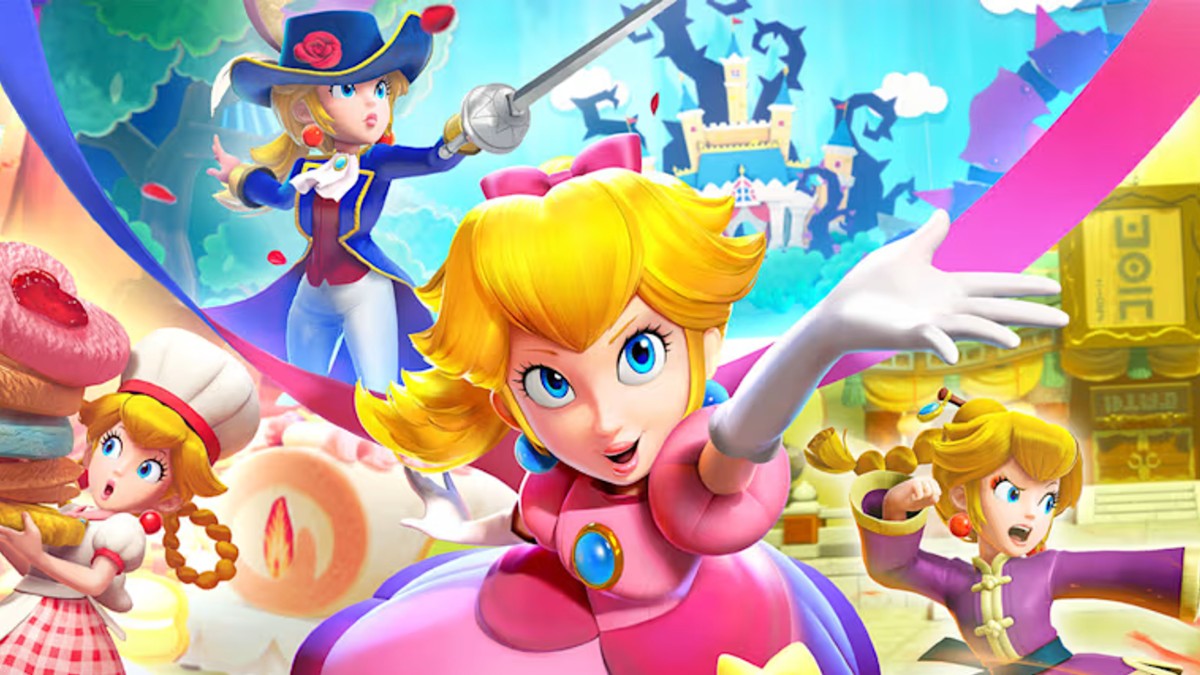Developed by Supergiant Games. Published by Supergiant Games. Released May 20, 2014. Available on PC (reviewed), PS4.

Supergiant Games is a master of the aesthetic. As far as I’m concerned, Bastion was an okay game, a decent little title that consisted mostly of recycled ideas and possessed of a quality found in most browser-based free-to-play games. However, it brought with it an art style and soundtrack so effectively beautiful, it successfully passed itself off as something much more. It became a critical darling, and I’m convinced to this day that such a feat was accomplished through skilled use of sensory manipulation and sheer force of presentation.
The studio’s latest production, Transistor, continues the trend of placing style over substance to the point of obfuscation. Its weird story is convoluted and relies too much on vague referencing to appear “deep” and meaningful, but nonetheless hides behind an incredible soundtrack to sell its ideas more effectively. On a basic level, it’s hard not to be suckered in by it, either. It’s helped by some incredibly vocal performances, especially with regards to the titular Transistor, a “living” sword wielded by protagonist Red, whose melancholy delivery evokes the overwhelming sense of sadness that permeates Transistor supremely well.
Indeed, this is a depressing little game. Our game opens with Red standing over a corpse with the aforementioned sword rammed through its chest, her beautiful singing voice having just been robbed by an organization known as The Camerata. This group has unleashed The Process – a collective of robot-like entities that proceed to take over Cloudbank City in their hunt for Red and the sword. Also, the sword can absorb the consciousness of dead people, because it might as well.
As critical as I may sound of Transistor‘s story, I actually quite like it, in an odd way. It uses trickery to appear more complex than it is, as Bastion‘s did, but its cast of characters and the subtle twists throughout the tale are at the very least intriguing, and there’s no arguing that a stylish presentation can sell even the worst ideas. The sense of sadness that lingers over the whole narrative is palpable, and the game’s eventual ending is, I have to say, beautifully done.

Transistor is not quite the brawler-oriented adventure Bastion was. Based on the idea that the Transistor is more computing device than sword, Red can use “Functions” to perform attacks with it, programming the blade with up to four active commands. These Functions are collected during story points and as Red levels up, and may be mapped to each of the four main face buttons, provided the Transistor has enough Memory (which can be upgraded with levels too) to activate them. Functions have a wide variety of effects, from simple slam and projectile attacks, to abilities allowing Red to summon her own Process ally, or perform an evasive dash move.
Each Function has room for at least one upgrade slot (which can be expanded as Red levels up), into which other Functions might be slotted. On its own, the Spark ability sends out a projectile that explodes into other projectiles when it detonates. If Spark is used as an upgrade instead, it can give a sense of its power to a different Function, allowing other attacks to split themselves into multiple projectiles. Mixing and matching Functions is a core part of the game, and there’s enough flexibility to where players will likely spend a long time finding the set that’s right for them. This is all before Red gets to equip Functions as passive items, allowing her to use stealth, regenerate health, or whatever other wacky ability she could access. There’s a ton of potential to play with.
Combat is split between real-time and quasi-turn-based actions. For the most part, players get to run freely around the environment, performing attacks as and when they’re available, while trying to avoid the wall of death that Processes can throw her way. However, in a system similar to Fallout‘s V.A.T.S feature, time can be stopped in order for players to program in a sequence of attacks, that then play themselves out. This system, known as “Turn()”, is downright essential, not least when the amount of projectiles and near-unavoidable attacks coming Red’s way starts to border on the ridiculous.
Whether or not you enjoy Transistor‘s combat comes down to when – or if – you find the combination of Functions that works for you. Without having the right set of attacks, the game can be incredibly frustrating, especially once Red’s health gets depleted and Functions become “overloaded” – unable to be used again until she activates the next two save points. When you start to feel your mojo working, Transistor can be immensely satisfying. While you’re experimenting, however, it can be anything but.
That said, the scope of what can be done with what is ultimately a fairly simple system is impressive. Like with most things Supergiant does, the whole world of Functions and Turn()s is way less complicated than it appears to be, but it’s certainly got some depth to it.
Visuals and sound are the bread and butter of a Supergiant game, and Transistor really does knock it out of the park with a gorgeous art style, fantastic use of color, and highly evocative soundtrack. I maintain that the style is positioned way above any actual substance, but I also cannot deny just how damn great such an elegant style truly is. From environments, to enemy design, to every distinct attack animation, everything is gorgeous, flowing, and colorful. Transistor is one of those games that prove you don’t need bleeding-edge game engines and 500 million dollar budgets to get a beautiful looking title.
Really, it’s hard not to fall for Supergiant’s trap when the trap is this damn pretty.
Bottom Line: Sometimes frustrating in terms of both gameplay and narrative, Transistor manages to be a redolent title with a ton of imagination. While not quite as clever as its presentation suggests, it’s a pretty little title that ends on a beautifully bittersweet note.
Recommendation: If you enjoyed Bastion, this is a far better attempt at what that last effort tried to do. If you’re one of the few who didn’t care for it, you may still want to check this out, should you get an opportunity.
[rating=3.5]


